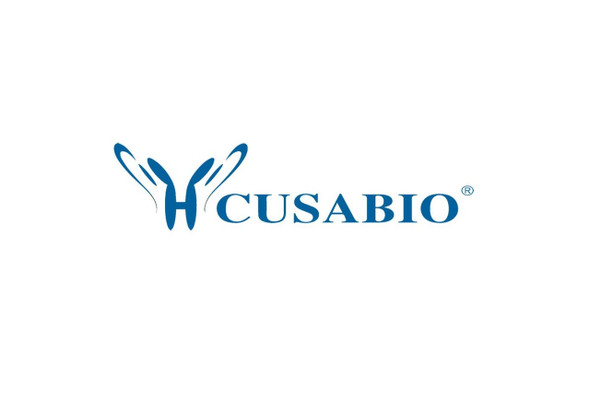Cusabio Salmonella typhi Recombinants
Recombinant Salmonella typhi 3-dehydroquinate dehydratase (aroD) | CSB-EP326162SWW
- SKU:
- CSB-EP326162SWW
- Availability:
- 13 - 23 Working Days
Description
Recombinant Salmonella typhi 3-dehydroquinate dehydratase (aroD) | CSB-EP326162SWW | Cusabio
Alternative Name(s): Type I DHQase
Gene Names: aroD
Research Areas: Others
Organism: Salmonella typhi
AA Sequence: MKTVTVKNLIIGEGMPKIIVSLMGRDINSVKAEALAYREATFDILEWRVDHFMDIASTQSVLTAARVIRDAMPDIPLLFTFRSAKEGGEQTITTQHYLTLNRAAIDSGLVDMIDLELFTGDADVKATVDYAHAHNVYVVMSNHDFHQTPSAEEMVLRLRKMQALGADIPKIAVMPQSKHDVLTLLTATLEMQQHYADRPVITMSMAKEGVISRLAGEVFGSAATFGAVKQASAPGQIAVNDLRSVLMILHNA
Source: E.coli
Tag Info: N-terminal 6xHis-SUMO-tagged
Expression Region: 1-252aa
Sequence Info: Full Length
MW: 43.6 kDa
Purity: Greater than 90% as determined by SDS-PAGE.
Relevance: Involved in the third step of the chorismate pathway, which leads to the biosynthesis of aromatic amino acids. Catalyzes the cis-dehydration of 3-dehydroquinate (DHQ) and introduces the first double bond of the aromatic ring to yield 3-dehydroshikimate. The reaction involves the formation of an imine intermediate between the keto group of 3-dehydroquinate and the epsylon-amino group of Lys-170 at the active site.
Reference: Insights into substrate binding and catalysis in bacterial type I dehydroquinase.Maneiro M., Peon A., Lence E., Otero J.M., Van Raaij M.J., Thompson P., Hawkins A.R., Gonzalez-Bello C.Biochem. J. 462:415-424(2014)
Storage: The shelf life is related to many factors, storage state, buffer ingredients, storage temperature and the stability of the protein itself. Generally, the shelf life of liquid form is 6 months at -20?/-80?. The shelf life of lyophilized form is 12 months at -20?/-80?.
Notes: Repeated freezing and thawing is not recommended. Store working aliquots at 4? for up to one week.
Function: Involved in the third step of the chorismate pathway, which leads to the biosynthesis of aromatic amino acids. Catalyzes the cis-dehydration of 3-dehydroquinate (DHQ) and introduces the first double bond of the aromatic ring to yield 3-dehydroshikimate. The reaction involves the formation of an imine intermediate between the keto group of 3-dehydroquinate and the epsylon-amino group of Lys-170 at the active site.
Involvement in disease:
Subcellular Location:
Protein Families: Type-I 3-dehydroquinase family
Tissue Specificity:
Paythway:
Form: Liquid or Lyophilized powder
Buffer: If the delivery form is liquid, the default storage buffer is Tris/PBS-based buffer, 5%-50% glycerol. If the delivery form is lyophilized powder, the buffer before lyophilization is Tris/PBS-based buffer, 6% Trehalose, pH 8.0.
Reconstitution: We recommend that this vial be briefly centrifuged prior to opening to bring the contents to the bottom. Please reconstitute protein in deionized sterile water to a concentration of 0.1-1.0 mg/mL.We recommend to add 5-50% of glycerol (final concentration) and aliquot for long-term storage at -20?/-80?. Our default final concentration of glycerol is 50%. Customers could use it as reference.
Uniprot ID: P24670
HGNC Database Link: N/A
UniGene Database Link: N/A
KEGG Database Link: KEGG
STRING Database Link: STRING
OMIM Database Link: N/A









